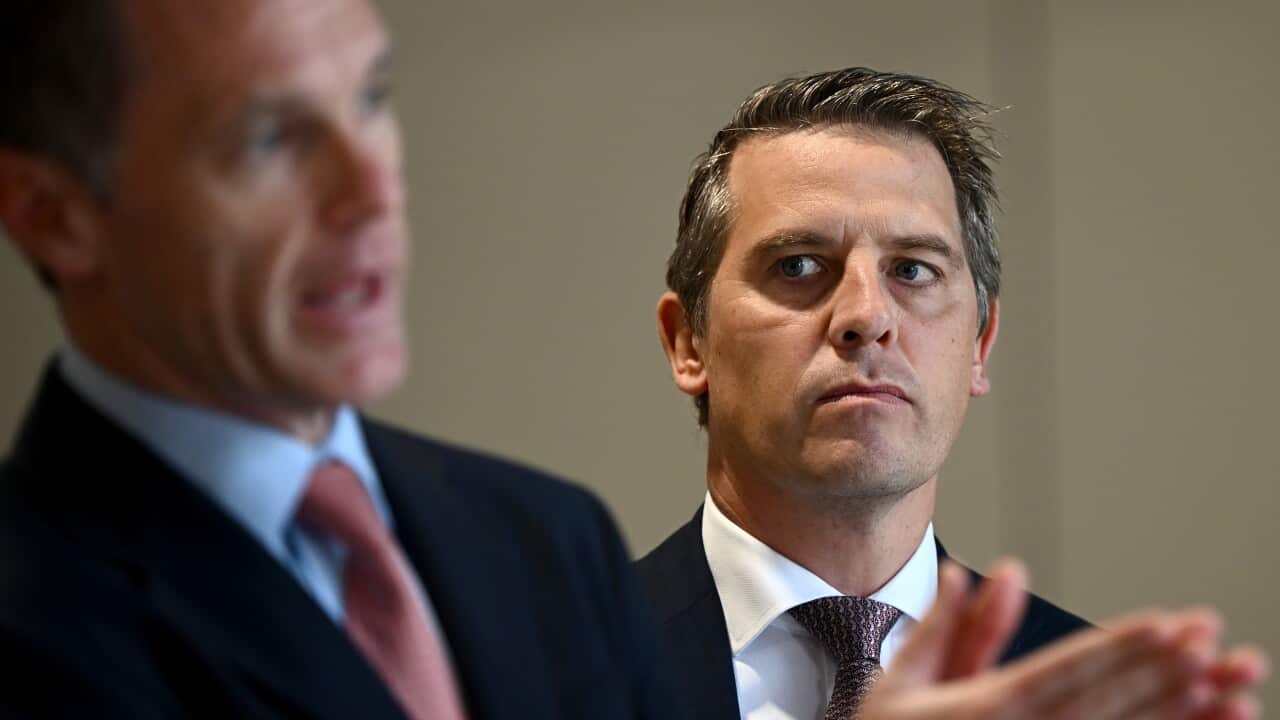Health officials are urgently working to implement contingency plans as hundreds of public hospital psychiatrists in NSW are threatening to resign, citing chronic understaffing and low pay.
Around 200 of the state’s psychiatrists have submitted resignation letters to their union and plan to leave their positions on 21 January.
Doctors from the Australian Salaried Medical Officers’ Federation (ASMOF) are demanding a 25 per cent base pay increase over one year, a request the state government has refused to accept.
NSW Health Minister Ryan Park said the pay increase request was impractical and urged doctors to withdraw their resignations.
“We don’t want this action to take place. We value the work that you do, but we as a government are not in a position to offer wage increases akin to around about $90,000,” he said.
“Don’t do this to patients. Don’t do this to the healthcare system that I know you love and support. Don’t do this to your colleagues who I know you value and trust,” Park said.
What’s the dispute about?
The state government has offered a 10.5 per cent pay increase for hospital staff specialists over three years, but the doctors are demanding a 25 per cent increase.
Ian Lisser, acting executive director of ASMOF, said the psychiatrists had little choice but to resign after working for months in a “crumbling system”.
“Instead of dealing with the underlying problem of staff retention and attraction, the minister for health seems happy to throw mental health patients, the psychiatry workforce, and doctors in training in NSW under the bus,” he said.
Lisser said the state government refused to increase their 3 per cent pay offer despite a 30 per cent pay gap compared to what psychiatrists earn in other states.
“The NSW government has failed to be an attractive employer and is now spitting the dummy when no one wants to work for them,” he said.
Lisser said psychiatrists had been urging the government to address the issue for around 16 months, but their concerns were ignored.
“The [health] minister is well aware that there is already a dangerously understaffed mental health service with a staffing shortfall of 140 psychiatrists in NSW, and he has done nothing to fix this.”
Is there a pay disparity?
According to data from ASMOF, public health specialists, including psychiatric consultants, in NSW are the lowest paid in the country.
According to AMSOF the gap in pay widens when you take into account payment for on call and overtime.
A first-year consultant in Western Australia would earn a guaranteed minimum income 51.6 per cent higher than their NSW counterpart, while in the Northern Territory, they would make 44.6 per cent more.
In Victoria, they would earn 0.28 per cent more.
The pay gap widens further when factoring in on-call pay and overtime.
NSW health dealing with a ‘chronic workforce shortage’
NSW’s public mental health system has the capacity to employ over 400 psychiatrists but is failing to fill these vacant positions.
Dr Elizabeth Moore, president of the Royal Australian and New Zealand College of Psychiatrists, told SBS News NSW’s health system is facing a critical situation.
“Countless reports and inquiries have repeatedly confirmed what we already know — there is a critical and chronic workforce shortage hampering the system’s ability to care for the people that rely on it,” she said.
The state’s public mental health system, with the capacity to employ over 400 full-time specialist psychiatrists, is struggling as hospitals are unable to fill vacant positions due to an ongoing recruitment and retention crisis.
“For the system to work, it needs to be fully staffed, which it has not been because of a lack of a clear plan and investment to grow NSW’s mental health workforce,” Moore said.
“At its heart, the issue is about patient safety and care. The same conditions that lead to burnout among psychiatrists also result in poorer outcomes for the people they’re trying to help.”
Could mass resignations of psychiatrists lead to wider impacts?
The NSW pay dispute is ongoing, and industrial relations experts suggest health workers in other regions would be monitoring the situation to assess whether the mass resignations result in a better pay offer.
Professor Drew Dawson from Central Queensland University, who specialises in industrial relations negotiations, told SBS News he “suspects psychiatric services in each of the states would be watching extremely closely”.
“Industrial representatives or unions, depending on the nature of the job being done, will say, ‘Look, that’s what our mates over in New South Wales or Victoria or South Australia are getting’, and then everybody who wants that outcome will use that as a precedent,” he said.
David Peetz, professor of employment relations at Griffith University, said mass resignations are a “risky tactic” when it comes to bargaining.
“Mass resignation is a risky tactic and one not used very often. But the psychiatrists have, on their side, a major labour shortage in psychiatry,” he told SBS News.
He said whether the tactic leads to a ripple effect in other jurisdictions would depend on several factors.
“The attitudes of the key players, including whether the participants have the stomach for it; how severe the labour shortage is in other states; what alternative income opportunities are available if people quit; and, critically, the outcome in NSW.”
Tasmania’s strategy to address psychiatrist shortages
Dr Michael Lumsden Steel, president of the Australian Medical Association (AMA) Tasmania, explained how the state has managed its own retention issues in the past.
“When faced with a similar crisis with psychiatrists leaving the Tasmanian health system, AMA worked with the premier of the day to introduce a retention and attraction allowance specific to psychiatry, which has now been superseded by our much-improved current Salaried Medical Practitioners agreement,” he said in a statement.
“This unique arrangement at the time helped to stem the exodus of psychiatrists until we could permanently embed it into our doctor’s agreement.”
SBS News has contacted health unions in other states and territories.

